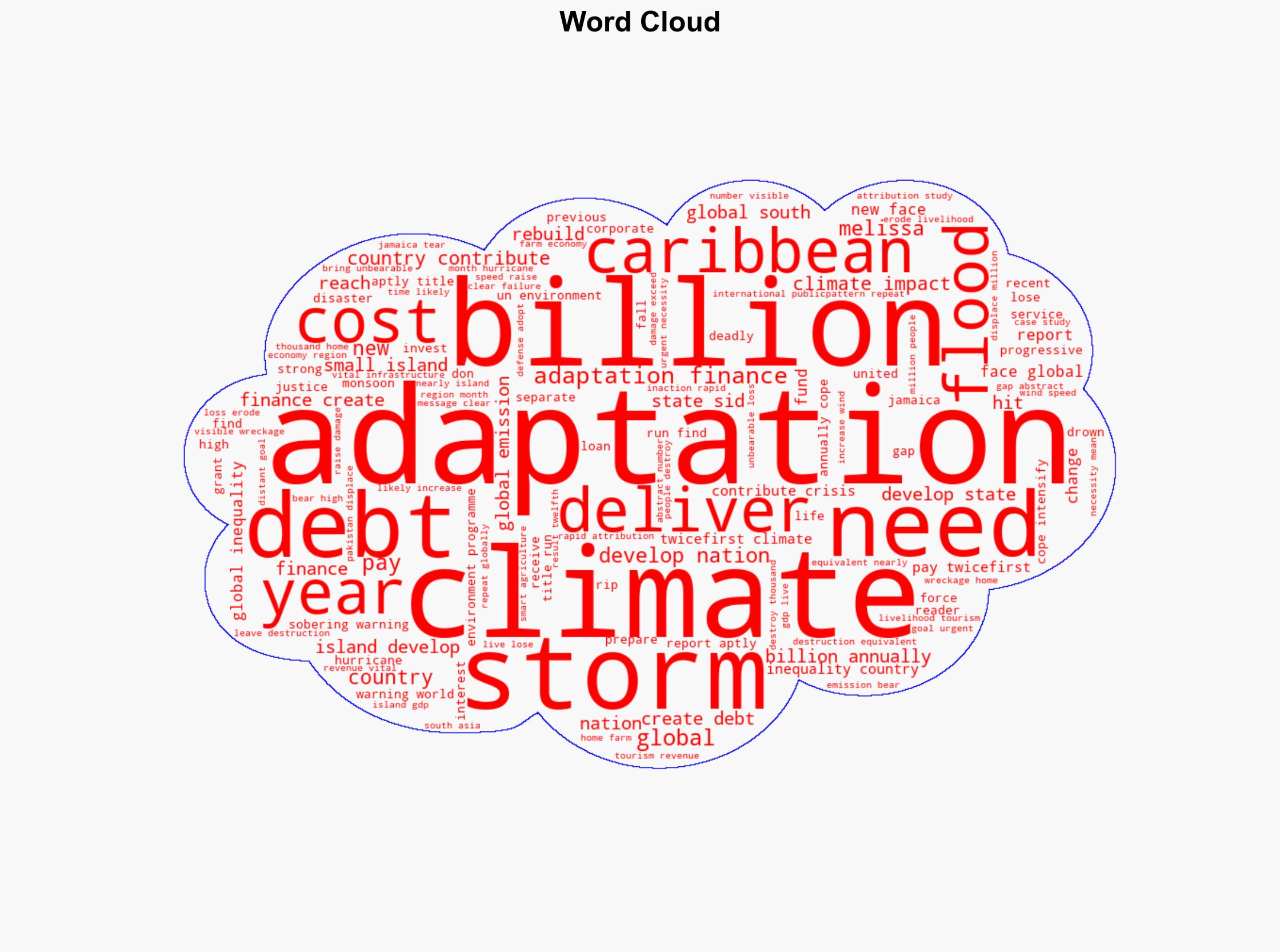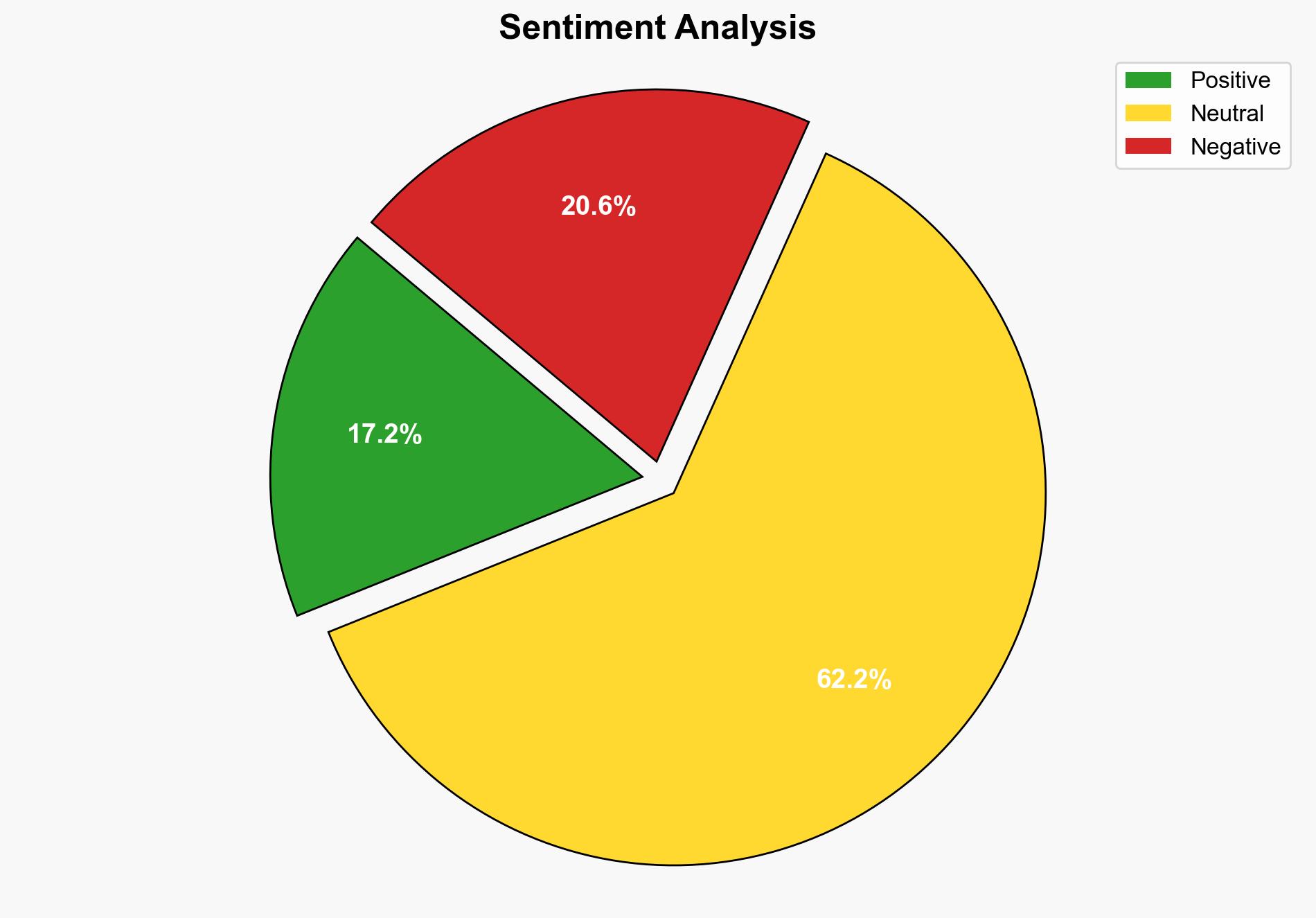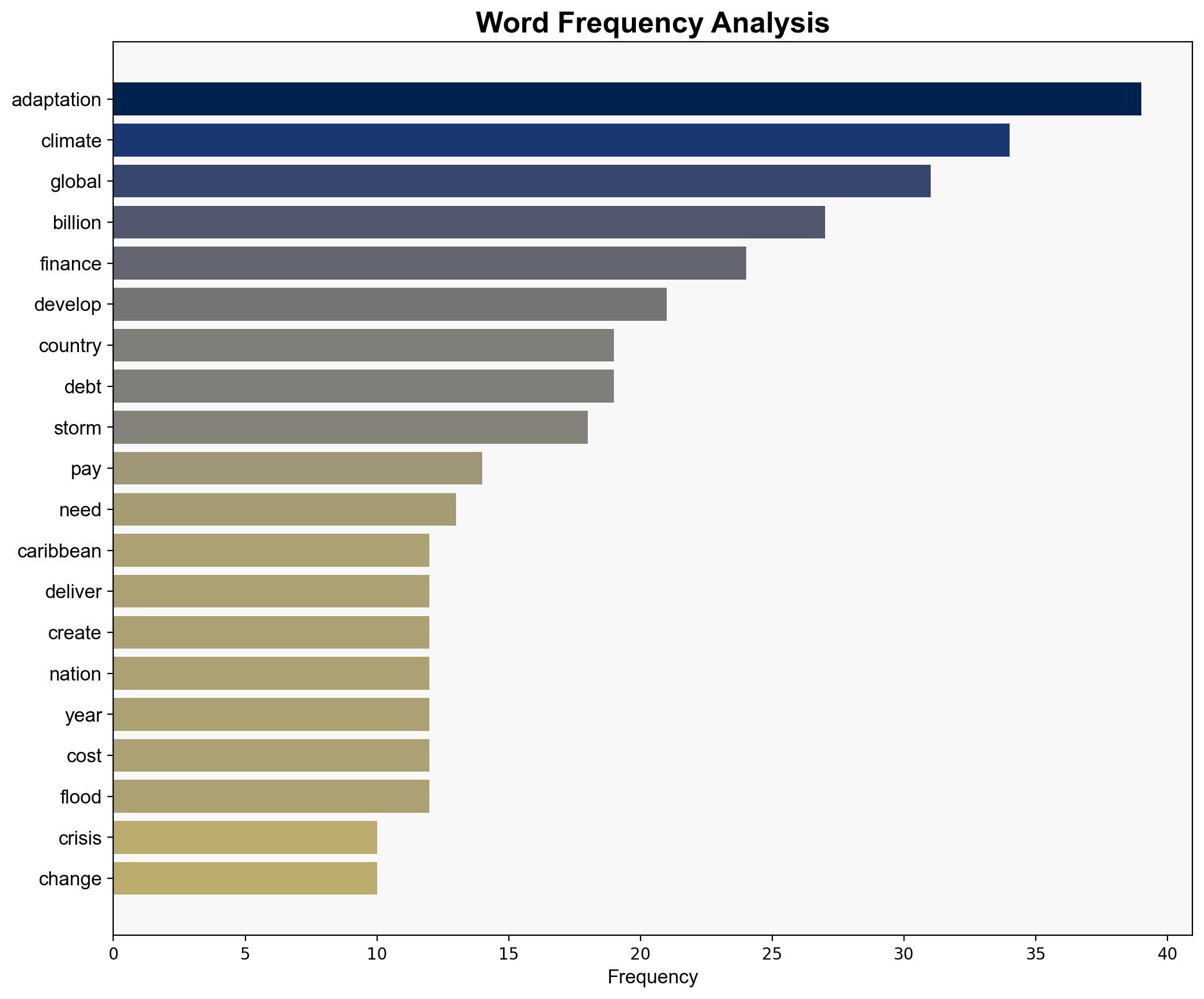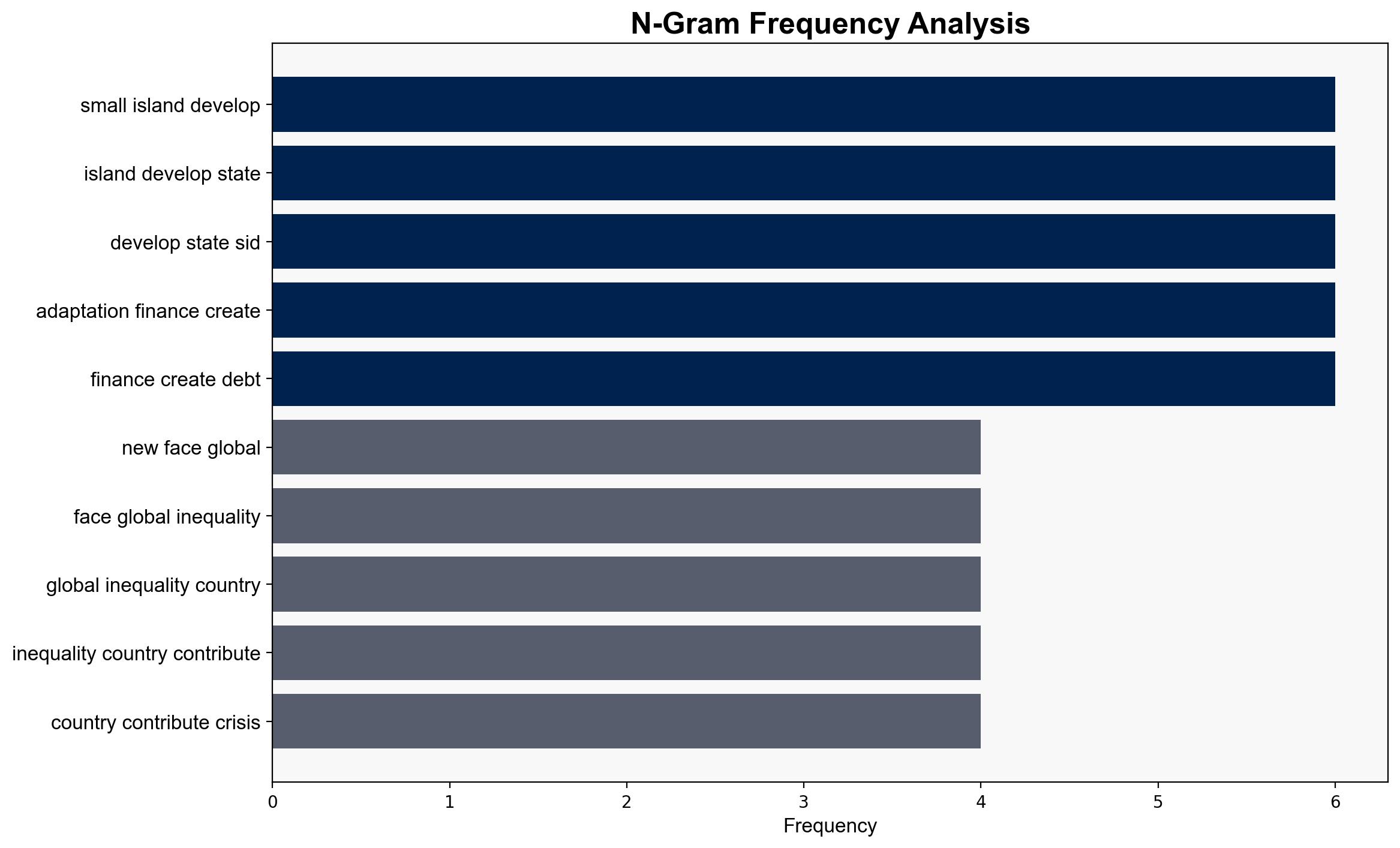Climate Adaptation Failure Is the Next Debt Crisis for the Global South – Common Dreams
Published on: 2025-11-11
AI-powered OSINT brief from verified open sources. Automated NLP signal extraction with human verification. See our Methodology and Why WorldWideWatchers.
Intelligence Report: Climate Adaptation Failure Is the Next Debt Crisis for the Global South – Common Dreams
1. BLUF (Bottom Line Up Front)
The failure to adequately finance climate adaptation in the Global South is likely to exacerbate existing debt crises, leading to increased economic instability and social unrest in vulnerable regions. The most supported hypothesis is that insufficient adaptation funding will force these nations into unsustainable debt cycles. Confidence Level: High. Recommended action includes increasing international financial support for climate adaptation and reforming global financial systems to better accommodate the needs of vulnerable nations.
2. Competing Hypotheses
Hypothesis 1: Insufficient climate adaptation funding will lead to increased debt burdens in the Global South, exacerbating economic instability and social unrest. This is supported by evidence of current funding gaps and the increasing frequency of climate-related disasters.
Hypothesis 2: The Global South will manage to adapt through alternative means, such as regional cooperation and private sector investment, mitigating the potential debt crisis. This hypothesis is less supported due to the limited capacity and resources of these regions and the slow pace of private investment.
3. Key Assumptions and Red Flags
Assumptions: It is assumed that current international financial commitments will not significantly increase in the near term. There is also an assumption that climate-related disasters will continue to increase in frequency and severity.
Red Flags: The reliance on loans rather than grants for adaptation finance is a significant red flag, as it increases debt burdens. Additionally, the lack of effective mechanisms to ensure funds reach local levels poses a risk to effective adaptation.
4. Implications and Strategic Risks
The failure to address climate adaptation financing could lead to cascading economic crises in the Global South, potentially destabilizing entire regions. This could result in increased migration, political instability, and heightened tensions over resource allocation. The economic strain could also lead to increased cyber and informational threats as nations seek to protect their interests.
5. Recommendations and Outlook
- Increase international financial support for climate adaptation, prioritizing grants over loans.
- Reform global financial systems to better accommodate the needs of vulnerable nations, potentially through debt relief or restructuring.
- Best-case scenario: Significant increase in adaptation funding and effective implementation, leading to reduced economic and social impacts.
- Worst-case scenario: Continued underfunding leads to widespread economic collapse and social unrest in the Global South.
- Most-likely scenario: Incremental improvements in funding and adaptation efforts, with ongoing challenges and localized crises.
6. Key Individuals and Entities
United Nations Environment Programme (UNEP), International Institute for Environment and Development (IIED), governments of vulnerable nations in the Global South.
7. Thematic Tags
Regional Focus: Global South, Caribbean, South Asia
Structured Analytic Techniques Applied
- Causal Layered Analysis (CLA): Analyze events across surface happenings, systems, worldviews, and myths.
- Cross-Impact Simulation: Model ripple effects across neighboring states, conflicts, or economic dependencies.
- Scenario Generation: Explore divergent futures under varying assumptions to identify plausible paths.
Explore more:
Regional Focus Briefs ·
Daily Summary ·
Methodology





